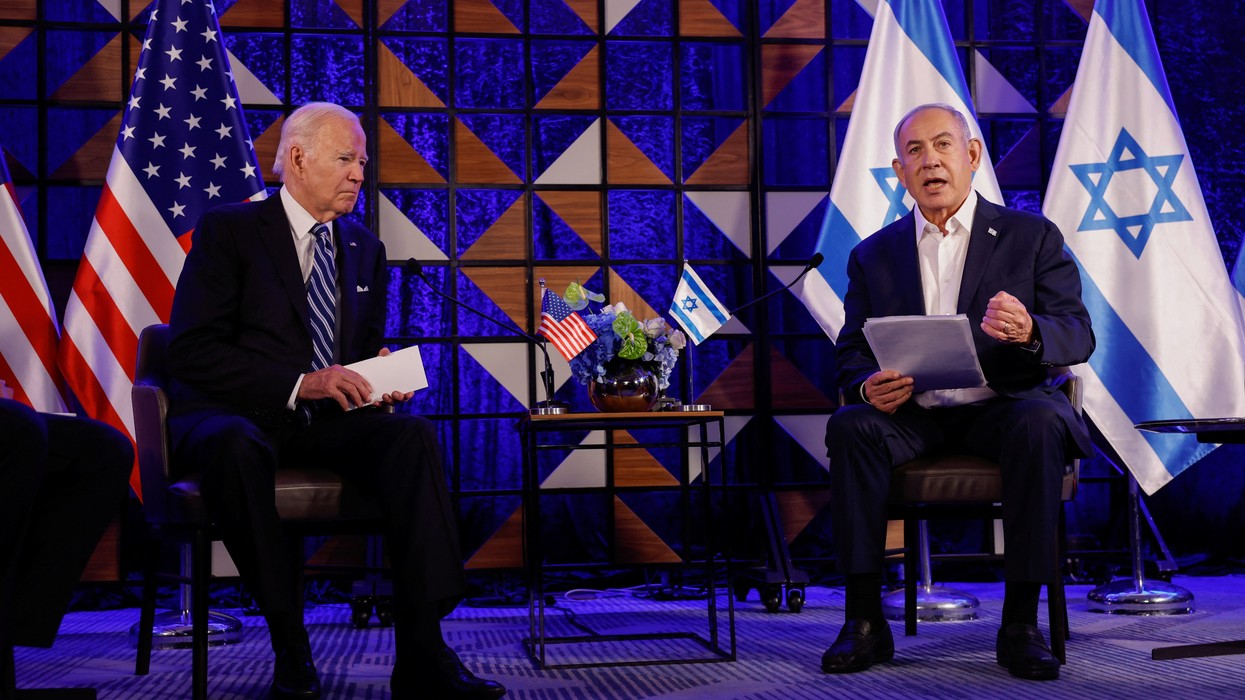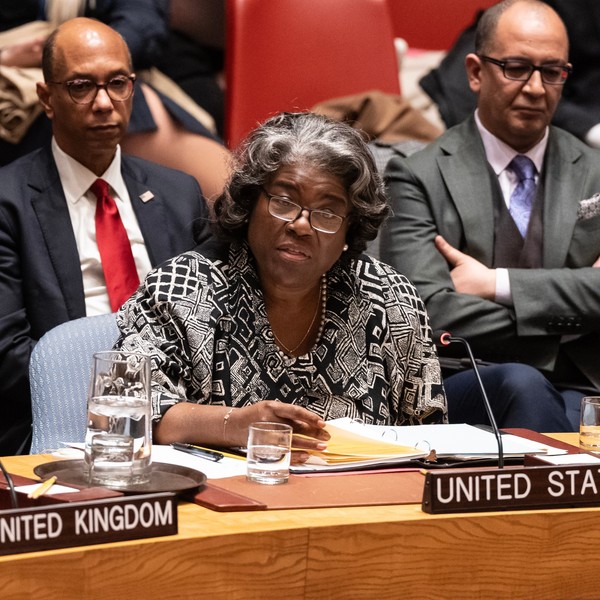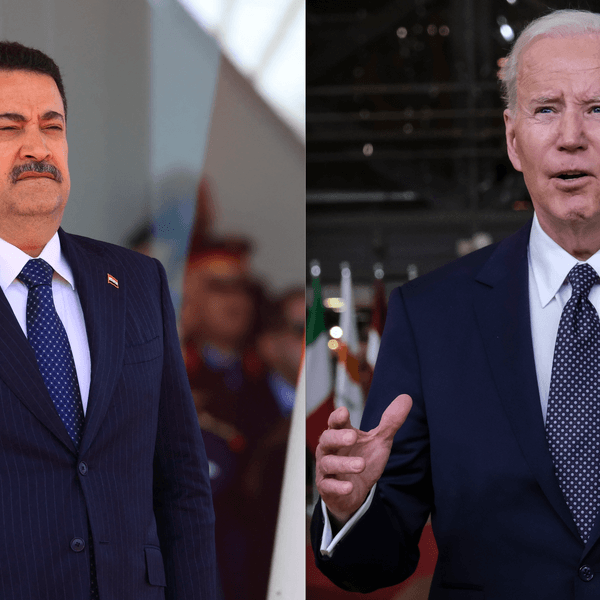As surveys of American public opinion show strong support for the Ukrainian and Taiwanese people overall, it is worth noting that in these polls, African Americans reflect much more resistance to potential military engagement than other racial groups.
A December poll conducted by the Chicago Council revealed that roughly 3 in 10 Americans would support sending military forces to support Ukraine and Taiwan (this is actually down from April). In contrast, a September 2022 poll conducted by my organization, the Carnegie Endowment for International Peace, composed entirely of African Americans, revealed that only two in ten respondents supported sending U.S. military forces to support Ukraine or Taiwan.
This jibes with earlier surveys. For example, in an April 2022 Quinnipiac University Poll, African Americans were much less inclined to show support for the U.S. doing “more to support Ukraine, even if it means increasing the risk of the United States getting into a war with Russia.” Only 11 percent of African American voters were willing to risk war with Moscow, compared to 22 percent of White voters and 17 percent of Hispanics voters who felt the same way.
An August 2022 poll conducted by the data analytics firm YouGov reported that 28 percent of African American respondents think “the U.S. should help protect Taiwan militarily from China.” This finding is significantly lower than White Americans (46 percent) and respondents whom the survey classified as “other” (48 percent). Hispanic respondents (29 percent) were the only other racial group that held similar sentiments to African Americans.
One of the major benefits of these segmented surveys is that they allow for data analysis pinpointing differences that might go unnoticed in polls that normally combine racial groups. The Carnegie survey reveals that war support is weakest among several demographics: lower income Blacks, generational African Americans (individuals with residence in the U.S. for more than three generations), women, and Democrats.
Households that reported an income less than $50,000 annually (492 respondents) reported support for Ukraine and Taiwan by 17 percent and 16 percent, respectively. In comparison, households with an income of more than $80,000 annually (156 respondents) supported sending troops to Ukraine and Taiwan by 26 percent and 25 percent, respectively.
Respondents who resided in the U.S. for more than three generations (865 respondents) reported support for sending troops to both Ukraine and Taiwan at 17 percent. In comparison, foreign born respondents (120 respondents) reported support for Ukraine and Taiwan by 30 percent and 25 percent. Men (534 respondents) reported support for sending troops to Ukraine and Taiwan by 24 percent and 25 percent, whereas women (604 respondents) reported sending troops to both regions by 18 percent and to 15 percent.
Political affiliation is perhaps the most notable metric. African Americans who identify as Democrat support sending troops to Ukraine and Taiwan by 22 percent and 20 percent. However, Republican respondents support sending troops to Ukraine or Taiwan by 38 percent and 44 percent.
Interestingly, we are at an inflection point in the posturing of our nation’s major political parties on foreign policy. There is a shift in how the American left and right thinks about U.S. military engagement. Democratic party leadership has shown solidarity with the Ukrainian cause and has flirted with the idea of defending Taiwan militarily in the event of a Chinese invasion on several occasions. This is reflected in most polls of Americans who identify as Democrats, including in the December Chicago Council survey where they were more willing to send troops to defend Ukraine than their Republican counterparts by nearly 10 percentage points.
However, the Carnegie poll data reveal that the Democratic party’s new modus operandi is not translating to rank-and-file African American voters.
These findings in war support differences are not novel. Well before trillions of dollars were spent and hundreds of thousands of innocent lives were lost in America's Global War on Terror, a 2003 Gallup poll revealed that African American support for the invasion of Iraq was less than half that of the White population. A decade removed from that conflict, and as the nation seemingly recommits itself to a new set of conflicts, African Americans’ appetite for war remains small.
Of course, there will be some individuals that lean on reductionist stereotypes to rationalize weaker support for war among African Americans. To be clear, history has shown that during military conflicts of the 20th Century — World War I, World War II, Korea, and Vietnam — millions of African Americans nobly served in these conflicts, committed to the idea of American democracy and national service. But at the conclusion of these bloody conflicts, many Black veterans returned home to racial violence, denial of their veteran benefits, and struggling communities that seemed left behind after they were no longer needed to sacrifice.
That was the past. And yet, the present is not all that different. The Black community is still disproportionately affected by disparities in income, healthcare, and education. Their communities — think Flint, Michigan and Jackson, Mississippi — are plagued by environmental racism. The George Floyd protests of 2020 were a painful reminder that racial fissures still exist in our nation.
African Americans, especially Black men, are currently overrepresented in the U.S. Military compared to their proportion of the civilian population. Given the history and today’s domestic concerns, Carnegie’s survey data should be understood as a calculation by African Americans of what another commitment to war would mean in terms of the economic and social costs to their communities.
Pundits on both ends of the political spectrum have asked the critical question: How does U.S. foreign policy impact the American people? The surveys above are but a glimpse into how African Americans — a population that has proudly served in every U.S. Military conflict — feel about serious foreign policy decisions that could affect their lives and communities, perhaps disproportionately.
Whether or not Washington elites appreciate American public opinion on world affairs, remains unclear. We can at least hope the foreign policy establishment and current administration weigh the opinions of the African American public — which overwhelmingly support the Democratic Party and serve in the Armed forces — and ask themselves how a Great Power conflict will impact rank and file Americans, many of whom will have to fight in that war.















